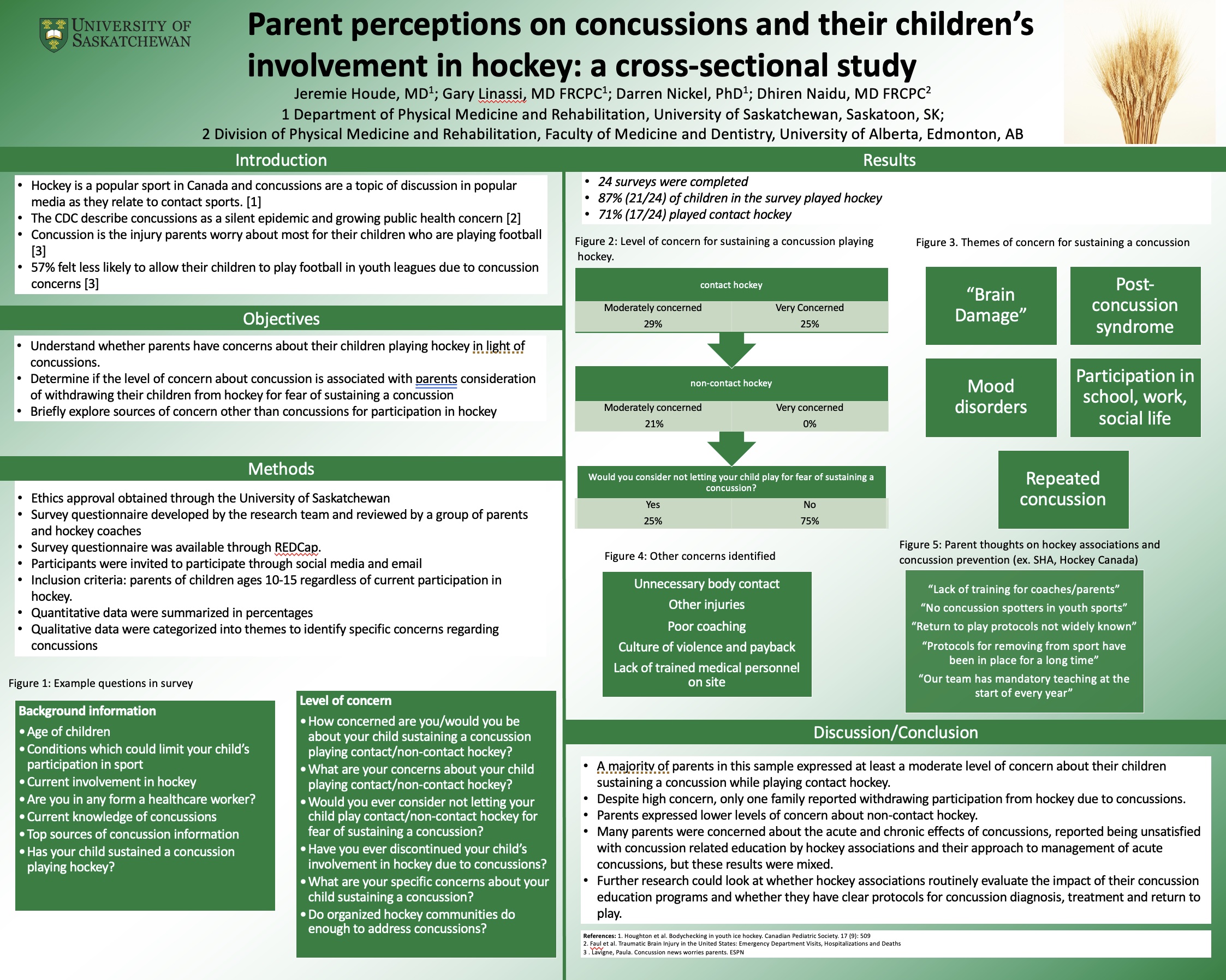
A2.6: Parent perceptions on concussions and their children’s involvement in hockey: a cross-sectional study
Jeremie Houde, Gary Linassi, Darren Nickel, Dhiren Naidu
Objective: Hockey is a popular sport in Canada, with 607 951 registered participants in 2019/20, and concussions are a regular topic of discussion in the media. Our objectives were to understand whether parents were concerned about their children playing hockey in light of concussions and to explore what specific concerns parents may have with regard to concussions.
Design: Our online survey was completed through REDCap. Participants were invited through social media. Quantitative data were summarized with percentages. Qualitative data were categorized into themes to identify specific concerns regarding concussion. Ethics approval was obtained through the University of Saskatchewan Participants: Parents with children age 10-15 regardless of participation in hockey were invited to participate.
Results: 24 surveys were completed; 21/24 (87%) had children playing hockey, with 17/24 (71%) playing contact hockey. 25% (6/24) reported being very concerned and 29% (7/24) moderately concerned about their child sustaining a concussion in contact hockey. None were very concerned, and 21% (5/24) were moderately concerned for sustaining a concussion in non-contact hockey. Parents reported concerns of “brain damage”, post-concussion syndrome including mood disorders, and longterm effects. There were mixed results with regard to concussion education from hockey associations and the approach they have with concussion spotting, acute management, and return to sport.
Conclusion: A majority of parents in this sample expressed at least a moderate level of concern about their children sustaining a concussion while playing contact hockey. Despite this concern, only one family reported withdrawing participation. A majority of parents expressed fewer concerns about non-contact hockey. Many parents were concerned about the acute and chronic effects of concussions, reported being unsatisfied with concussion related education by hockey associations and their approach to management of acute concussions. Further research could look at whether or not hockey associations routinely evaluate the impact of their concussion education programs and whether they have clear protocols for concussion diagnosis, treatment and return to play.
